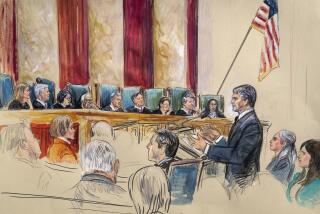The battle over detainee abuse photos
Click here to add your comment at the bottom of this editorial.
This spring, President Obama reversed himself and decided to block the release of photographs showing the abuse of detainees by the U.S. military. Now, having lost in two lower federal courts, the administration is seeking review by the U.S. Supreme Court. The justices should decline the invitation.
The high court ordinarily agrees to hear cases that raise difficult questions on which lower courts have disagreed. But two courts found the legal issue in this case straightforward. The Freedom of Information Act allows for the non-disclosure of information that “could reasonably be expected to endanger the life or physical safety of any individual.” The obvious purpose of that language is to protect individuals who might be identified and placed in harm’s way.
The administration is offering a different argument. In her petition to the Supreme Court, U.S. Solicitor General Elena Kagan quoted Obama’s warning that releasing the photos would “further inflame anti-American opinion and put our troops in greater danger.”
No doubt these and other photos would feed anti-American propaganda, as did the stomach-turning images of abuse at the Abu Ghraib prison in Iraq. It’s doubtful, however, that they would provide much additional traction for enemies who already portray the United States as a nation of torturers. If anything, releasing the photos -- with alterations to protect the identities of individuals -- would underscore Obama’s determination not to repeat the egregious violations of human rights that occurred during the Bush administration.
As we have argued before, suppressing images of atrocities -- whether of Nazi concentration camps, lynchings in the American South or “tiger cages” in Vietnam -- is an attempt to blot out the historical record. Besides, the attempt is likely to be unsuccessful, given the history of efforts to block the unauthorized release of embarrassing information. Ignoring those realities, the Senate has approved legislation that would allow the secretary of Defense to block release of photos of detainees captured abroad after 9/11. The House fortunately has not approved it.
Meanwhile, judges are charged with weighing the legality, not the wisdom, of withholding such photos. If the Supreme Court were to reverse or weaken the decisions of lower courts, the impact would extend far beyond this case. A dilution of the exemption in the FOIA for materials that would threaten individuals would be a license for future administrations to suppress all sorts of information on the grounds that it might exacerbate anti-Americanism. Obama was wrong to try to block the release of these photos. Neither the court nor Congress should compound his error.
More to Read
A cure for the common opinion
Get thought-provoking perspectives with our weekly newsletter.
You may occasionally receive promotional content from the Los Angeles Times.






